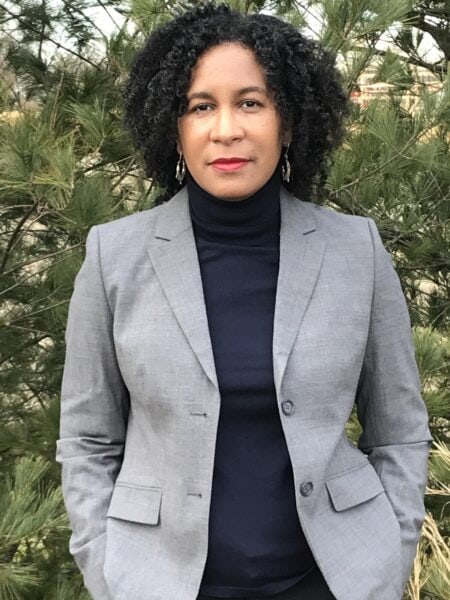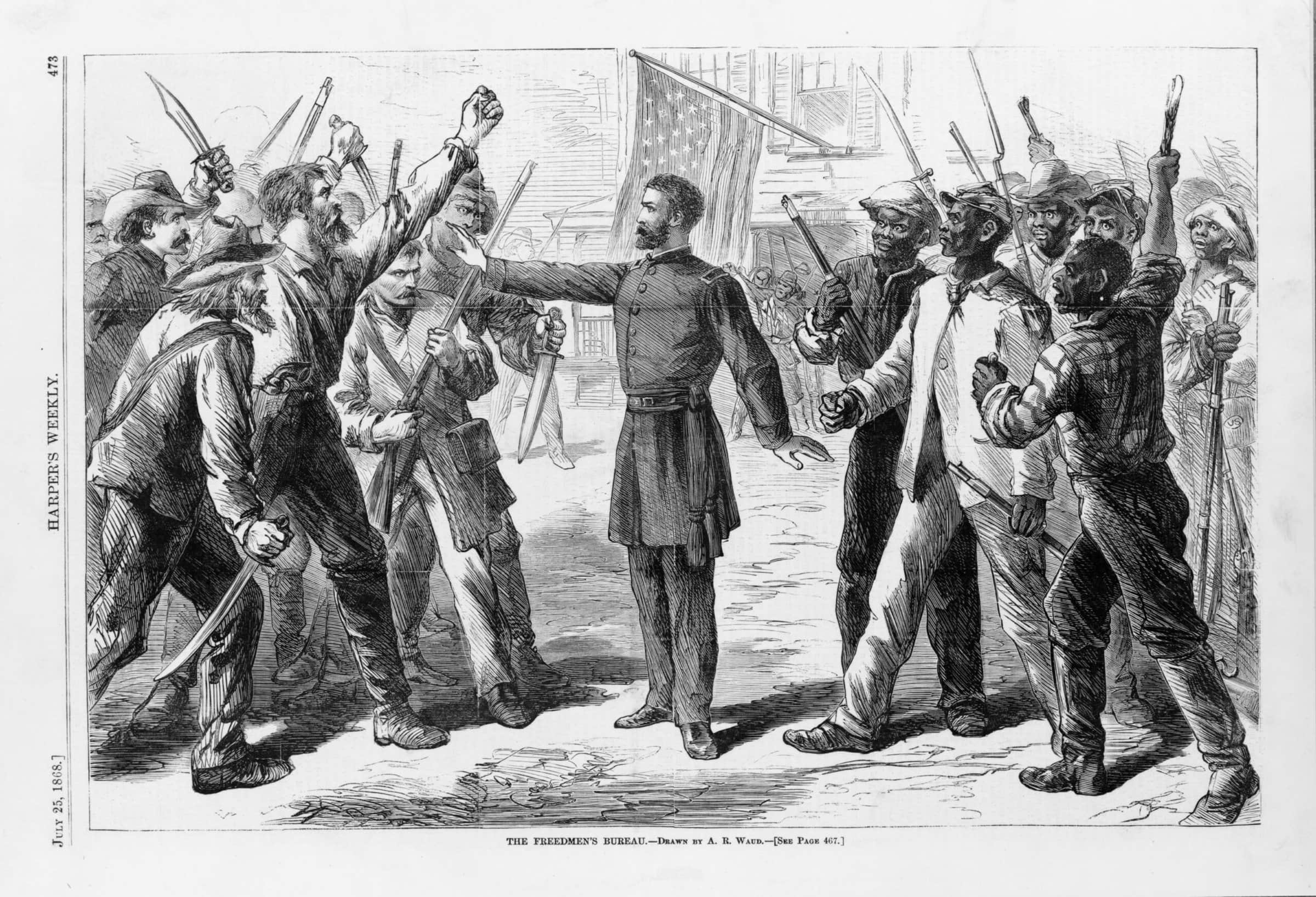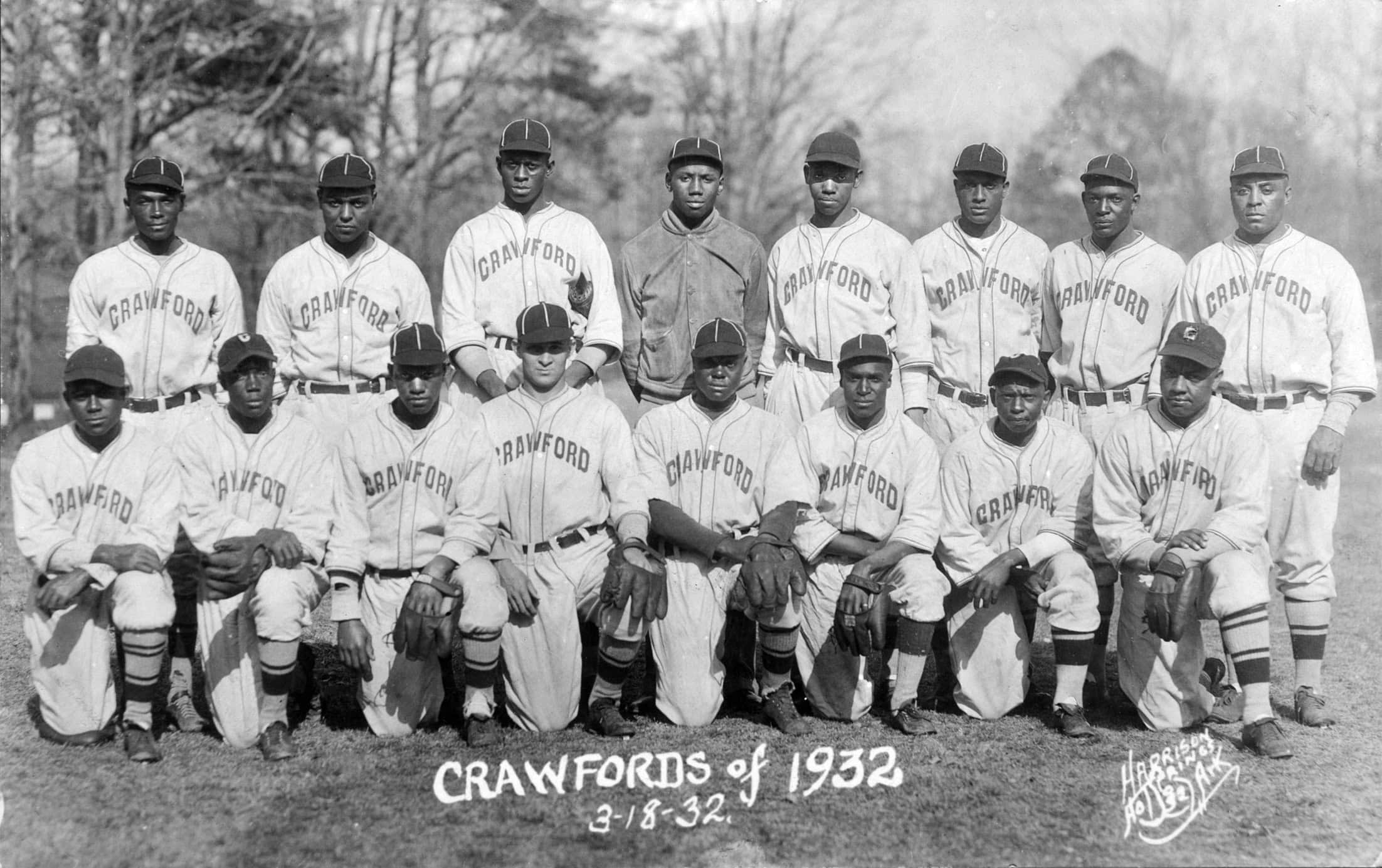Donna A. Patterson is a professor and chair of the Department of History, Political Science, and Philosophy at Delaware State University. She lives in Dover, Delaware, and has been a member since 2004.
Website: https://donnapatterson.wordpress.com
Twitter: @PharmacySenegal

Alma maters: BA (history and African American studies), University of Houston; MA (history), Indiana University; PhD (African history), Indiana University
Fields of interest: African, medicine, Latin American and Caribbean, global health
Describe your career path. What led you to where you are today?
I began my first full time teaching job at Dillard University. At the time, I was ABD, and my time at Dillard was disrupted by Hurricane Katrina. In fact, the impact on the university, the city, and the greater New Orleans area, led to my eventual decision to leave the state. However, before leaving, I was fortunate to receive a one-year fellowship in the History Department at Princeton University, where I was based from 2005–6. The hospitality of Princeton’s History Department and (at the time) the neighboring African American Studies Program was a balm in a difficult time. I returned to Dillard to teach for fall 2006 to fall 2007 and left to start a position in Africana studies at Wellesley College in 2008. I worked at Wellesley for a number of years and now subsequently work at Delaware State University. I would be remiss not to say that I spent some time working in nonacademic positions, including a stint at the US Embassy in Senegal and another in Washington, DC. I have also held fellowships at two think tanks: New America and the Wilson Center and another at the University of Texas Medical Branch in Galveston, Texas. In fact, I am currently a 2021–22 fellow at the Wilson Center.
What do you like the most about where you live and work?
What I enjoy most about my current position is the flexibility in teaching across disciplines and engaging in new university initiatives. Some are traditionally academic in nature and others are more far reaching. I also thoroughly enjoy working with my colleagues. In fact, this is one of the most collegial academic departments that I have encountered. Per place, I like the outdoor spaces in Delaware: parks, beaches (during off season), etc. I also like Delaware’s mid-Atlantic placement and the proximity to Washington, DC; Philadelphia; New York City; and elsewhere.
What projects are you currently working on?
I am currently working on a book project: Ebola, West, Africa and the World. I am revising a few articles for review and in discussion to co-edit a book on infectious disease. I am also the founding editor of the Routledge Research in Health and Healing in Africa and the African Diaspora. The first publication from the series is now in-press with others in different stages of review/contract. In addition to this work, I am the lead on global health initiative, and I periodically write op-eds.
Have your interests evolved since graduation? If so, how?
Yes, my interests have certainly evolved. In particular, my work includes much in areas of global health and public health. In addition, my primary work began in West Africa and to a lesser degree Europe and I now do considerable work in the Horn of Africa.
What’s the most fascinating thing you’ve ever found at the archives or while doing research?
While working in the archives for my first book project on Pharmacy in Senegal: Gender, Healing and Entrepreneurship, some of my most surprising finds were those unrelated directly to the project on drug trades and the historical matter on abortion in Senegal.
Is there an article, book, movie, blog etc. that you could recommend to fellow AHA members?
A few books that I would recommend are Julie Livingston’s Improvising Medicine: An African Oncology Ward in an Emerging Cancer Epidemic, Aoua Kéita’s Femme d’Afrique, and Sharla Fett’s Working Cures.
What do you value most about the historical discipline?
I like that we can draw from the historical past to help us navigate the present and the future. For instance, more academics, journalists, and others are looking to the 1918 global influenza pandemic as we traverse the current COVID-19 pandemic. In my book, Pharmacy in Senegal, I talk about how epidemics and pandemics in the 19th and early 20th century influenced early medical care training in West Africa.
Why is membership in the AHA important to you?
My AHA membership has been instrumental in different ways at different times. In early years, it was a great place to meet senior scholars in the field, and to interview for tenure-track positions. Now, the meetings are a place to re-connect with scholars I know and meet new scholars. Finally, I am also currently an associate review editor for the American Historical Review.
AHA members are involved in all fields of history, with wide-ranging specializations, interests, and areas of employment. To recognize our talented and eclectic membership, Perspectives Daily features a regular AHA Member Spotlight series.
This work is licensed under a Creative Commons Attribution-NonCommercial-NoDerivatives 4.0 International License. Attribution must provide author name, article title, Perspectives on History, date of publication, and a link to this page. This license applies only to the article, not to text or images used here by permission.



